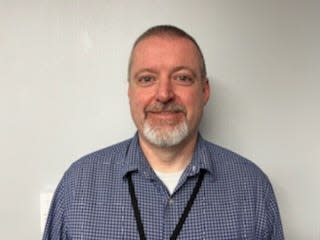For those experiencing mental health issues, there are free and low-cost resources
As a licensed, clinical social worker who has worked in mental health for nearly 25 years, I’ve seen how the changes in our world and our understanding of mental illness have enabled us to shift the way we think about, and respond to, mental health issues in our community.
In the past, "mental health" has been separated from "health." Rather than seeing mental health issues as treatable, biological issues that interrelate with our physical health, previous generations were told, "Just get over it."
We know so much more now. We know how genetics can play a huge role in mental health issues. We know that mental illnesses such as depression can impact our feelings — and that the feelings are a mere symptom of a significant health challenge. Telling someone to "get over" depression is like telling someone to "get over" a life-threatening illness.
As a community, we’ve made progress in mental health awareness and availability, but there is still a long way to go.
Availability
It’s been no surprise that our mental health has taken a hit during the pandemic. We’re social creatures, and our brains aren’t built to thrive in social isolation. Between July 1, 2019, and June 30, 2020, the Community Mental Health Care Program at the Community Free Clinic in Hagerstown saw 569 patients. Last year, that number nearly doubled. Since July 1, we have seen 558 patients so far. We’re on track to set another record. During the first peak of the pandemic, we saw a 700% rise in the need for mental health services.

In Hagerstown, we are fortunate. Through a grant from CareFirst BlueCross BlueShield (CareFirst), we at the Community Free Clinic have been able to meet the needs of our community when they needed us. To create better health outcomes, we needed to address the holistic health of an individual. By prioritizing the health of the mind and body, we could drive real impact in the health of our community. The grant allowed us to provide mental health services at no cost, and we were able to see patients quickly.
Mental health can be costly and getting an appointment with a provider can sometimes take up to three to six months. That’s just too long to wait, and that’s where we’ve been able to fill a real need in the community. The alternative is filling emergency rooms. We’ve seen patients who were suicidal or experiencing their first psychotic episode with hallucinations or delusions. These problems are urgent medical crises. They can’t wait.
While we serve the uninsured, we recognize that the availability of mental health care occurs across demographics, regardless of insurance status. Here at the clinic, we will treat everybody, and continue to see patients for as long as they want. Some of them complete their treatment with us. Others will see our staff until they can get placed and get their first appointments with other providers. We will not strand a patient and leave them without help.
Awareness
I’ve had patients walk into the clinic with six of the seven identifiers of depression who insisted: "I’m not depressed. Life is just hard." One of our biggest challenges is that people minimize what they're going through. Even if they aren’t suffering from depression or any other mental illness, mental health is part of health — and it impacts our physical health more than most of us know. Even if we don’t have an illness that requires medication, we must practice good mental health habits. Just as we wouldn’t hesitate to brush our teeth, learning some coping skills and a different stress management system can truly change a life trajectory, just as good dental care can help prevent gum disease.
Thankfully, Washington County has been proactive about bringing social workers and more mental health services into the school system. We can begin to teach our kids, so that by the time that they're adults and they're having children, mental health habits and willingness to seek care will be just as socially acceptable as going to the cardiologist.
Winter can be an isolating time, especially during a pandemic. If you’re struggling with any mental health issue, reach out. You are not alone. Community Free Clinic’s phone number is 301-733-9234. There are other resources at your fingertips too, like CareFirst’s behavioral health support team that can be reached at 800-245-7013, United Way’s Essential Community Services hotline, 211, or the National Suicide Prevention hotline, 800-273-8255.
Jeremy Cantner is the mental health director for Community Free Clinic in Hagerstown.
This article originally appeared on The Herald-Mail: Free, low-cost resources for those experiencing mental health issues
